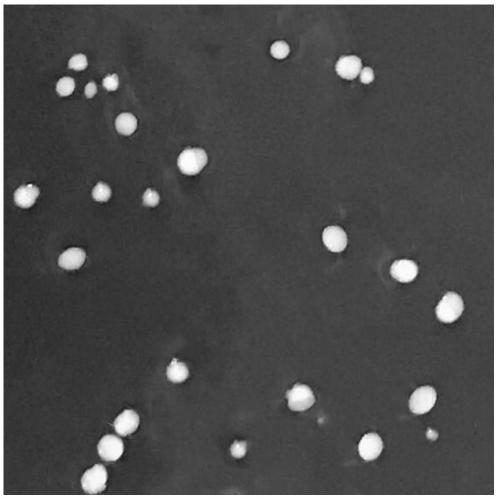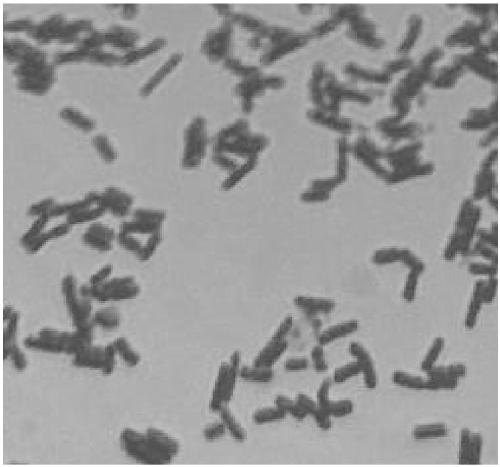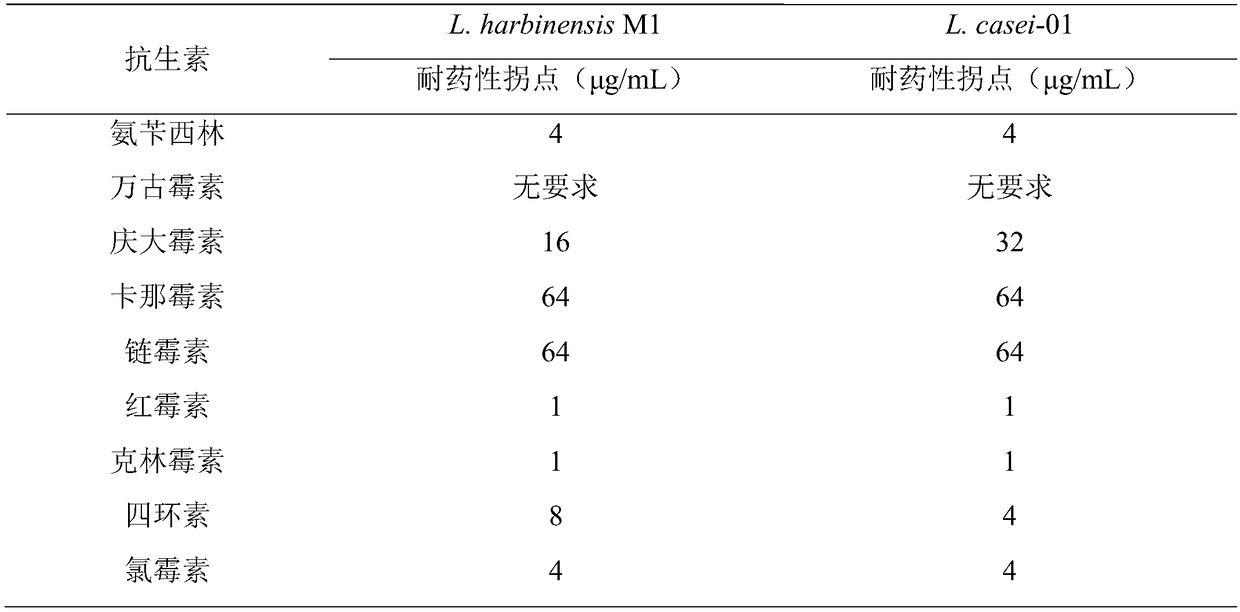Lactobacillus harbinensis and application thereof
A technology of lactic acid bacteria and strains, applied to Harbin lactic acid bacteria and its application fields, can solve the problems of poor fermentation, poor product flavor, poor adaptability, etc., and achieves reduction of beany flavor components, good probiotic effect, and good tolerance. Effect
- Summary
- Abstract
- Description
- Claims
- Application Information
AI Technical Summary
Problems solved by technology
Method used
Image
Examples
Embodiment 1
[0055] Embodiment 1: strain screening and identification
[0056] The first step of sampling and plate separation: Use sterile sampling bottles to collect naturally fermented physalis water on site and bring it back at low temperature. Immediately dilute to 10 with sterile water -3 、10 -4 、10 -5 Times, spread on the modified MRS solid medium. Then put them into a constant temperature incubator at 37°C and cultivate them for 48 hours. Pick suspected colonies and separate them by streaking on plates, repeat this 4-5 times until pure single colonies are obtained. The purified single colony was puncture-inoculated into the MRS semi-solid medium and stored in a refrigerator at 4°C.
[0057] The second step of morphological observation and physiological and biochemical experiments: the colony of the bacterial strain on the MRS medium is round, off-white, translucent, moist and smooth ( figure 1 ); Carry out Gram staining and cell shape observation, the thalline of bacterial st...
Embodiment 2
[0065] Example 2: Antibiotic Sensitivity
[0066] The first step is to prepare the lactic acid bacteria suspension: take a 100mL triangular flask, add 50mL modified MRS liquid medium, sterilize at 121°C for 15 minutes, inoculate Lactobacillus harbinensisM1 and Lactobacillus casei-01 strains respectively, cultivate overnight at 37°C, and store in a refrigerator at 4°C spare.
[0067] The second step of resistance plate preparation: using antibiotics ampicillin, vancomycin, gentamicin, kanamycin, streptomycin, erythromycin, clindamycin, tetracycline and chloramphenicol, the preparation concentration is 5120μg / mL of antibacterial drug stock solution, dilute to the required concentration of diluent according to the diluent preparation method before use. Draw 1.0mL of antimicrobial drug dilution into a large test tube of 9.0mL modified MRS agar medium, vortex and mix immediately, pour it into a sterile plate, and wait for solidification to obtain a certain drug concentration (μg / ...
Embodiment 3
[0072] Example 3: Tolerance to digestive juices
[0073] The first step is to prepare the lactic acid bacteria suspension: take a 100mL triangular flask, add 50mL modified MRS liquid medium, sterilize at 121°C for 15 minutes, inoculate Lactobacillus harbinensisM1 and Lactobacillus casei-01 strains respectively, cultivate overnight at 37°C, and store in a refrigerator at 4°C spare.
[0074] The tolerance of the second step to the simulated gastric juice and intestinal juice: the cultured lactic acid bacteria were mixed with 10 9 CFU / mL was inoculated into simulated gastric juice (pH=3), and transferred into simulated intestinal juice (pH=8) after 3 hours, and samples were taken every hour from 0h to 12h to calculate the number of viable bacteria by dilution coating method. The results showed that the remaining viable count of Lactobacillus harbinensisM1 in simulated gastric juice and intestinal juice was 2.76log CFU / mL, and the remaining viable count of positive control bacter...
PUM
| Property | Measurement | Unit |
|---|---|---|
| diameter | aaaaa | aaaaa |
Abstract
Description
Claims
Application Information
 Login to View More
Login to View More - R&D
- Intellectual Property
- Life Sciences
- Materials
- Tech Scout
- Unparalleled Data Quality
- Higher Quality Content
- 60% Fewer Hallucinations
Browse by: Latest US Patents, China's latest patents, Technical Efficacy Thesaurus, Application Domain, Technology Topic, Popular Technical Reports.
© 2025 PatSnap. All rights reserved.Legal|Privacy policy|Modern Slavery Act Transparency Statement|Sitemap|About US| Contact US: help@patsnap.com



